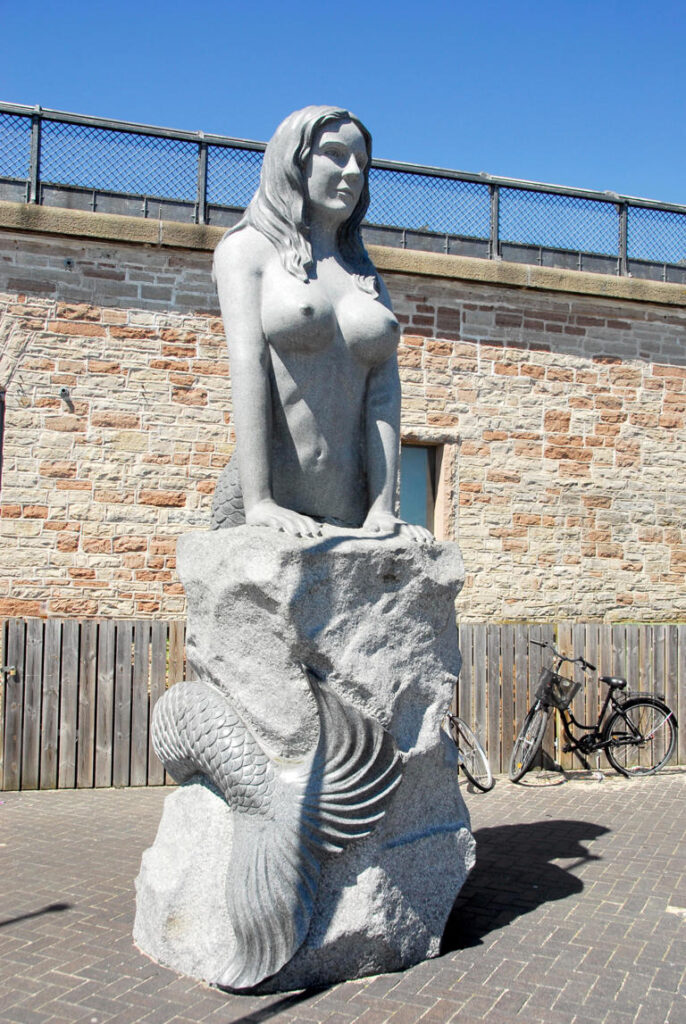I read this article at The Federalist (“The fact that celebrated works from the past contain nudity doesn’t justify us including it in our films, literature, and other mediums”) and much of what Meg Johnson says — and what Tolstoy said — is true.
However, as someone who enjoys nudity in art and pretty much everywhere else, allow me to come to its defense (so to speak). The problem is that people (like Tolstoy) conflate nudity with its effect on the viewer’s libido, but I’m not sure I agree.
Michelangelo’s Statue of David: art.
Michelangelo’s Statue of David Sporting A Massive Erection: not art.
In times when nudity was rare, or frowned upon by the pezzonovanti in the Church or government [some redundancy], then yes, the sight of a nude buttock or breast might have been titillating or arousing. And yes, with the relaxation of those rules, simple nudity became much less so. One has only to compare early Playboy magazines with modern-day Hustler to see the truth of that.
People always thought that publishing nudity was the thin end of the wedge, the start of the slippery slope and all the other clichés. I’m not going to argue with that, because one inescapable fact of nature is that humankind will always push boundaries, whether it’s nudity in art or legal confines. (Not all that long ago, theft used to be punished by hanging; now, even murder isn’t always faced with the same consequence. Speed limits are always tested, to the point where enforcement has had to apply a 10% “grace” allowance so as not to appear too tyrannical.)
Similarly, while “prurient” artistic nudity was banned in the past, “classical” nudity — i.e. nudity drawn to depict a Classical morality tale — was grudgingly accepted, an allowance that almost all classical artists took advantage of. The example used in Meg Johnson’s article, Bernini’s Rape Of Proserpina in Rome’s Galleria Borghese, is an excellent example:

It is, of course, exquisite — as much for Bernini’s skill as a sculptor as its reticence. Note that Bernini is showing the act of rape by displaying Pluto’s massive muscles compared to Proserpina’s slender feminine ones, the violence of her abduction revealed by her breast, rendered naked by her clothing having been ripped off, and Pluto’s brutally-joyous facial expression contrasting with her fearful one.
Bernini is not depicting the act of rape by showing Plato’s erect phallus plunging into Proserpina’s tender vagina — although he was quite clearly perfectly capable of sculpting it. But that would have been pornography; what he did is Fine Art.
I don’t have to show any examples of this comparison, because were I to do so, that would be showing pornography by using artistic criticism as its fig leaf. (See what I did there?)
But by displaying nudity in art and acknowledging that this could inevitably lead to pornography, does that mean society’s moral ruin is inevitable?
Of course not. And Johnson’s premise of “The fact that celebrated works from the past contain nudity doesn’t justify us including it in our films, literature, and other mediums” is in fact fatally flawed because it is denying that modern films and literature are themselves forms of artistic expression.
Where a movie director, for example, draws the line is the defining characteristic. I’ve often deplored the modern movie trend of showing love scenes as sex scenes, instead of simply hinting at it — you know, a close-up of a passionate kiss fading to black and the next scene showing the couple lying together in bed the following morning (or not even that explicit). To me, showing the sex between a couple denies us, the audience, the opportunity of using our imagination — and that’s a primary artistic flaw if ever there was one.
But simple nudity? I’m all in favor of it, if for no other reason that it upsets those who insist on their womenfolk wearing maxi-dresses, burkas or niqabs.
The hell with them.







